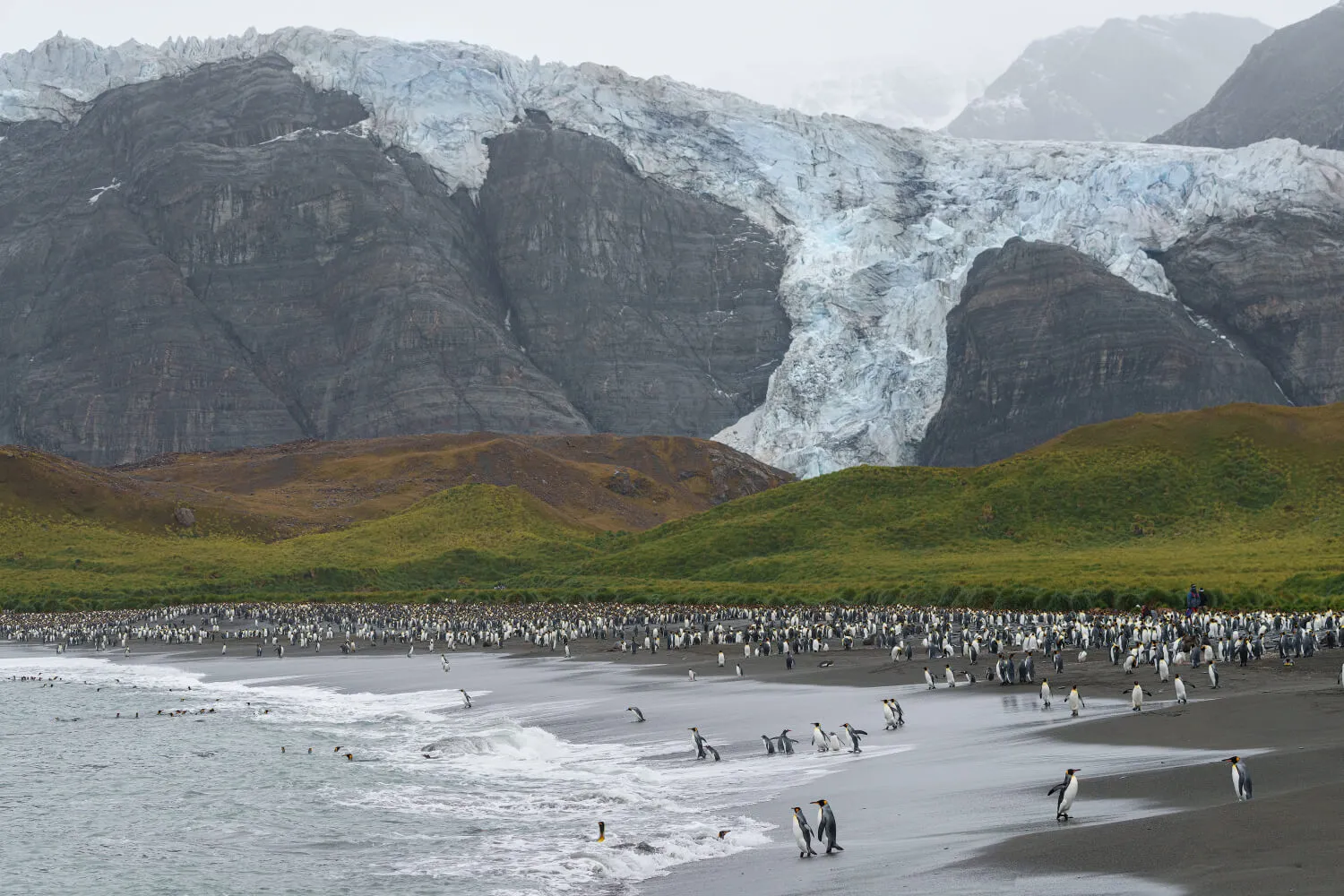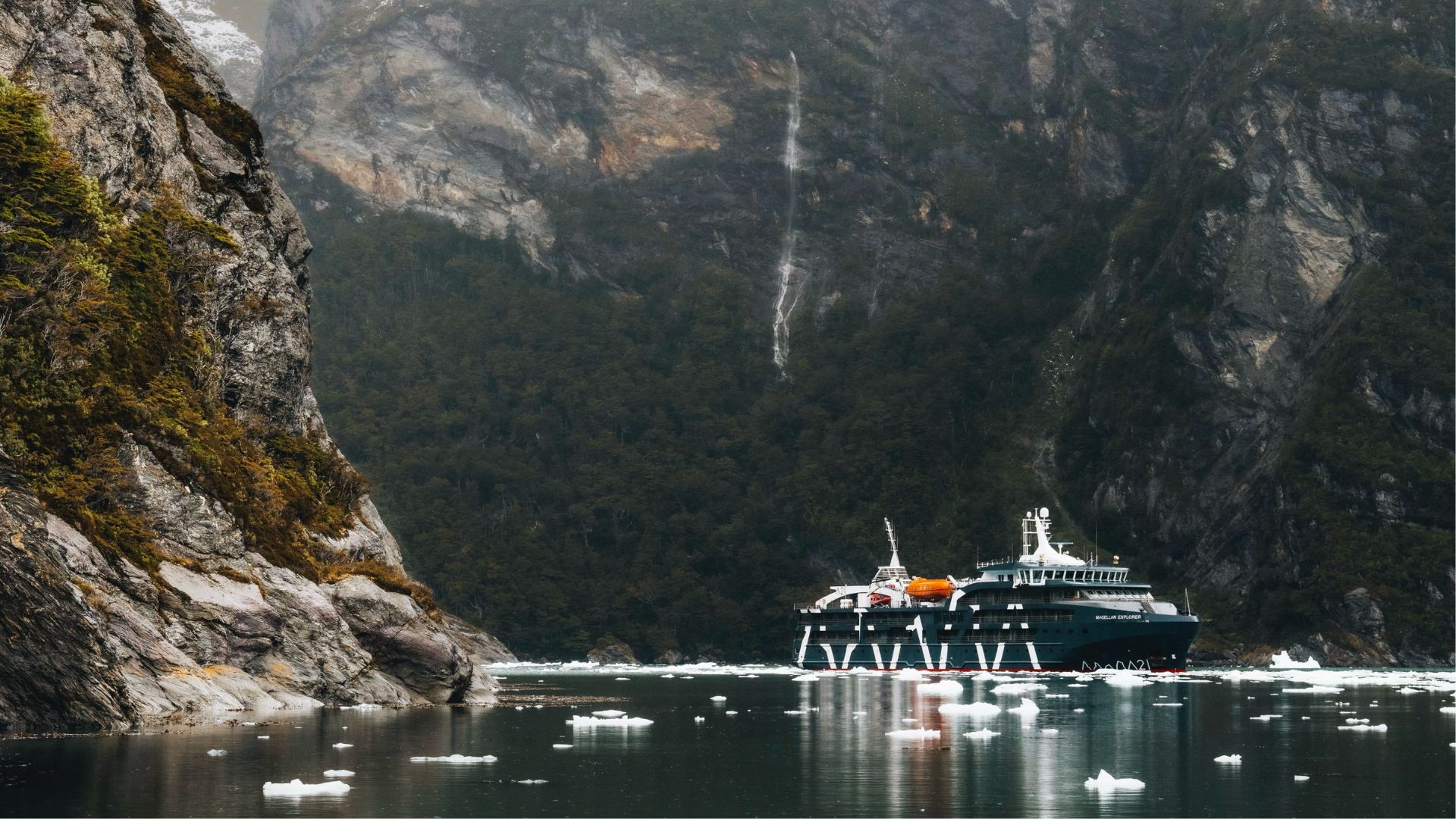

As a steadfast conservationist, Antarctica21 Expedition Guide and Conservation Biologist Kirsty Venter has dedicated the last 13 years of her life to conserving animals and the environment. As a published scientist, her research has spanned across a variety of marine and terrestrial species, as well as varying ecosystems. When Kirsty isn’t guiding for Antarctica21, she is supervising discussions at both national and international conferences and teaching university students in the hopes her passion for wildlife and conservation will carry on to the next generation.Keep reading to learn more about Kirsty’s journey in her own words.

"My first-ever trip to Antarctica was when I took part in a study on Antarctic blue whales. It didn’t take me long to appreciate the privilege of visiting such a spectacular place. Since then, every time I come to Antarctica — on an expedition with Antartica21 or for research purposes — I am absolutely blown away by how unique and special the environment is. There’s nowhere else on Earth where you will find a more spectacular, dramatic, and wild place!

It has taken scientists years to understand the uniqueness of this polar ecosystem, and the more we learn about Antarctica, the more we realize how it impacts us as humans and how important it is for the biological and climate systems worldwide. That’s why improving conservation efforts in Antarctica has become a high priority in the scientific community as our understanding of this polar region grows. New publications regarding the fragility and biological contribution of the Southern Ocean are growing at an exponential rate each year. With the ocean being responsible for over 50% of the oxygen we breathe and a huge carbon and heat sink — which means the ocean helps regulate our planet's temperature by absorbing carbon dioxide, or heat — it is helping us fight climate change and reduce the amount of carbon dioxide found in our atmosphere; it is incredibly important that we work hard to understand and protect it. Data collection in the Southern Ocean and Antarctica has historically been poor due to its remote location, the harsh environment and how hard it is to navigate, and the difficulty of sourcing funds to conduct research. But luckily this is changing. As scientists, we are developing a clearer picture and greater understanding of what is happening in Antarctica and in the ocean surrounding it. Some key conservation concepts that have emerged in the last decade are focusing on changes in animal and plant communities due to extreme weather conditions, shifts in global climate, and changes in the magnitude of ice, to name a few.

Looking to the future, some of the key research aspects I find particularly interesting are the changes in marine plant communities due to changes in sea salinity. This includes the movement of whales and Antarctic krill, a small crustacean that forms the base of the food web in Antarctica. How sea salinity is affecting both species helps us better understand how to fight climate change."For these reasons and more, Antarctica21 is committed to supporting sustainable travel and conservation through multiple concrete actions such as Carbon emission reduction and mitigation, strict protocols to minimize our impact when visiting Antarctica (following the IAATO and the Antarctic Treaty guidelines), and Antarctic research support through Citizen Science programs hosted onboard our vessels. Last but not least, we also have the Antarctica21 Foundation which undertakes activities in support of science, art, conservation, and education initiatives that contribute to the creation of Antarctic knowledge and scientific divulgation.

Start planning your next big adventure today! Review our limited-time promotions.
Related Articles
Experience the Extraordinary
From dramatic landscapes to close wildlife encounters, every journey to the White Continent is unique. Let's start planning yours together.











.avif)
_INT0328.avif)




